Our Impact at a Glance
Our Impact Categories
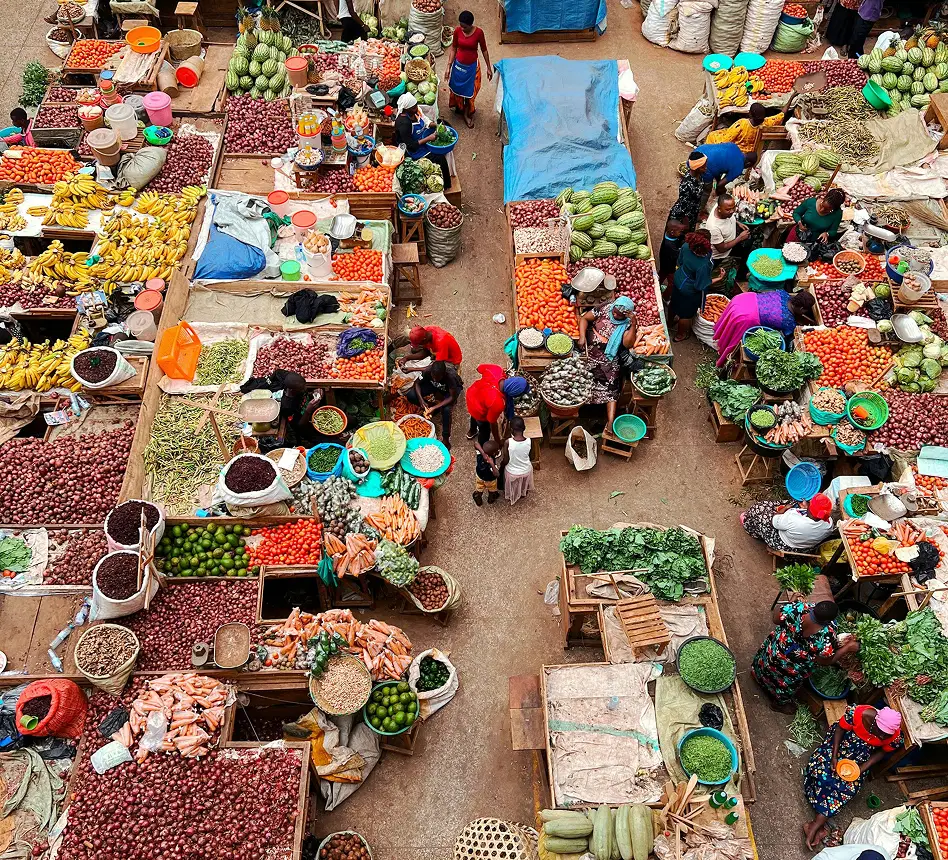
Year-Round Crop Production
FAMA addresses food seasonality and affordability by implementing advanced greenhouse farming systems. This ensures the year-round supply of fresh produce, stabilizes market prices, and enhances food availability across communities in West and Central Africa.
Impact
Greenhouse farming ensures a consistent fruit and vegetable supply, overcoming Africa’s seasonal shortages.
Metric
Enables year-round production across 5+ countries, addressing Africa’s 80–90% dependency on imported produce.

Nutrition
FAMA tackles malnutrition by increasing access to locally grown, nutrient-rich fruits, vegetables, maize, and fish. Through local farming support, training, and input access, we aim to improve healthy food availability by 10% by 2030.
Impact
Improving access to fresh, locally grown food to fight malnutrition and unaffordability.
Metric
Boost nutrition access by 10% by 2030; currently, 20% of Africans are malnourished, and 78% can't afford a healthy diet (FAO).
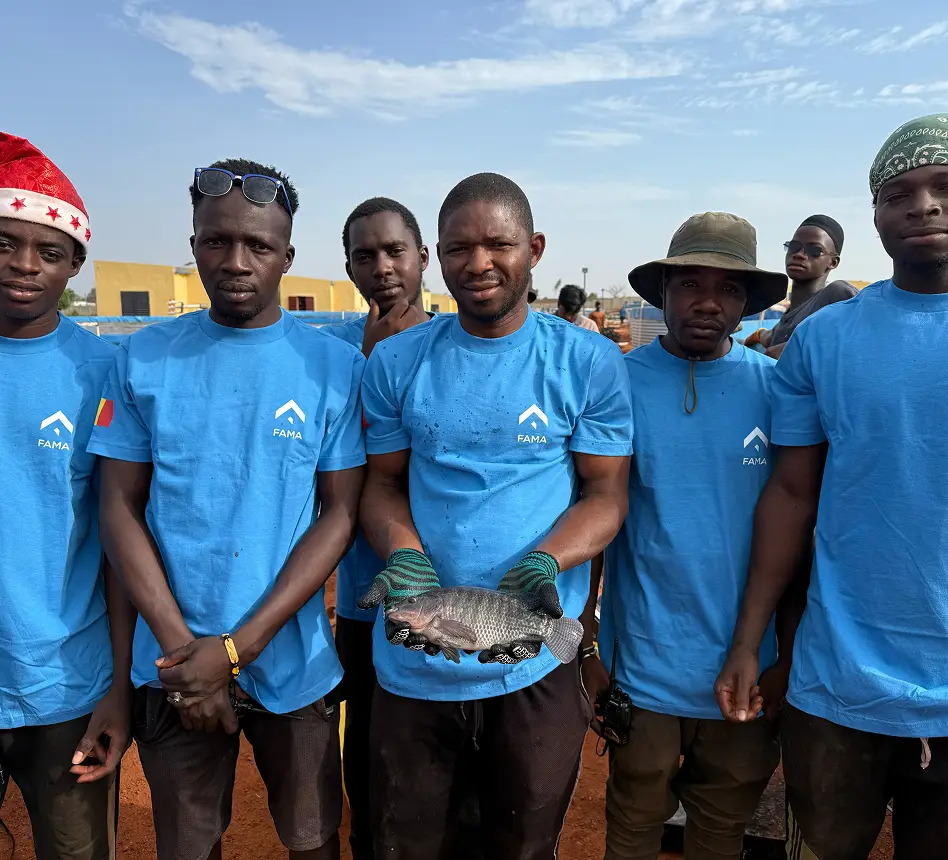
Sustainable Farming Practices
We promote sustainable agriculture by introducing eco-friendly methods, including hydroponics, drip irrigation, and organic farming. Combined with solar-powered operations, FAMA reduces environmental impact while teaching farmers to adopt efficient and climate-resilient practices.
Impact
Introducing eco-friendly solutions like hydroponics and drip irrigation to conserve resources.
Metric
Achieve 60% water savings across all farms using precision irrigation technologies.
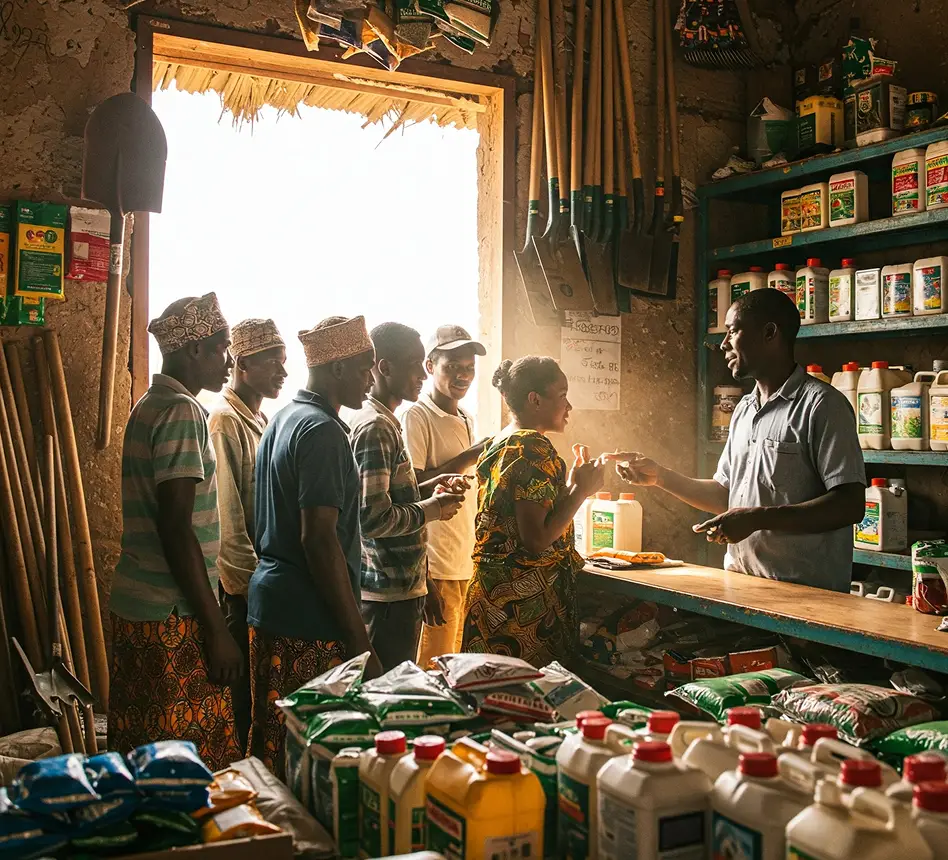
Carbon Emission Reduction
FAMA’s solar-powered farms reduce dependency on fossil fuels, preventing nearly 1,000 tons of CO₂ emissions annually. Our clean energy commitment aligns with global climate goals while ensuring sustainable energy for farming operations.
Impact
Transitioning to solar energy to reduce agriculture’s environmental footprint.
Metric
993.8 tons of CO₂ emissions saved annually via 800 kVA solar-powered fish farms.
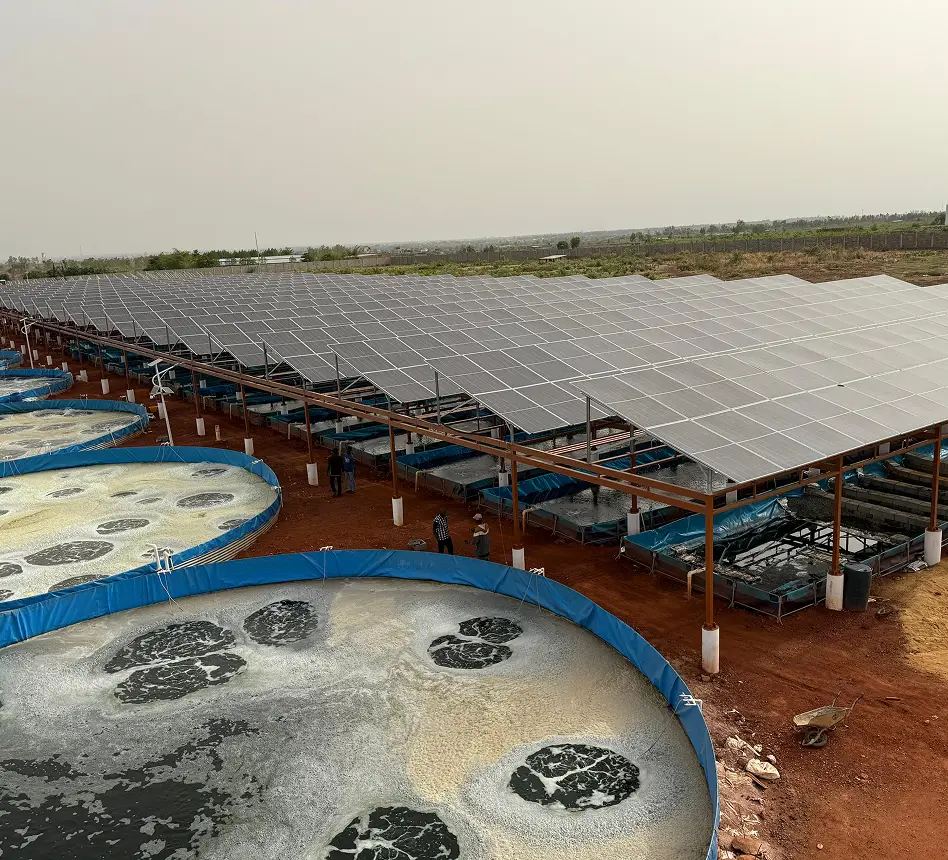
Job Creation
FAMA creates meaningful employment across agriculture, aquaculture, marketing, and farm management. With projects in multiple countries, we are set to generate over 500 jobs by 2030, uplifting local economies and empowering rural communities.
Impact
Strengthening local economies by creating employment across the agriculture value chain.
Metric
500+ direct jobs created by 2030 across farms in Mali, Congo, Benin, and Angola.
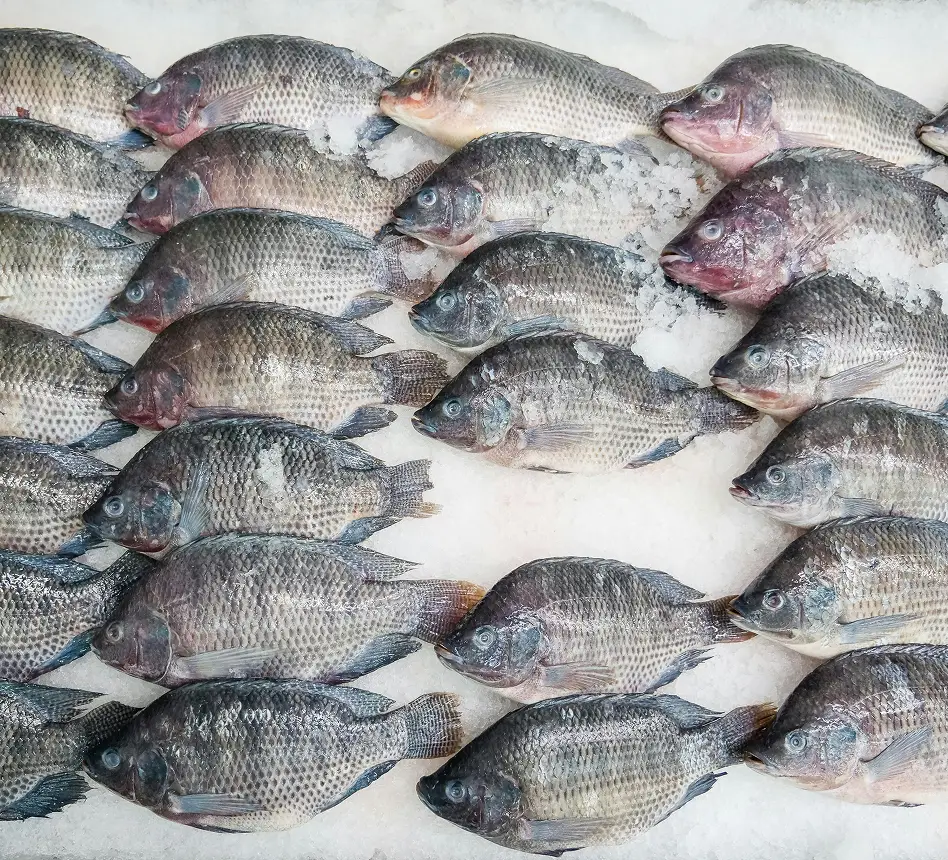
Training and Capacity Building
We conduct workshops and seminars on sustainable farming, pest control, crop rotation, and agribusiness. These programs aim to train 5,000 farmers by 2030, equipping them with modern techniques to increase efficiency and market access.
Impact
Empowering farmers through skills development in sustainable farming and agribusiness.
Metric
5,000 farmers trained in crop rotation, IPM, soil conservation, and branding by 2030.
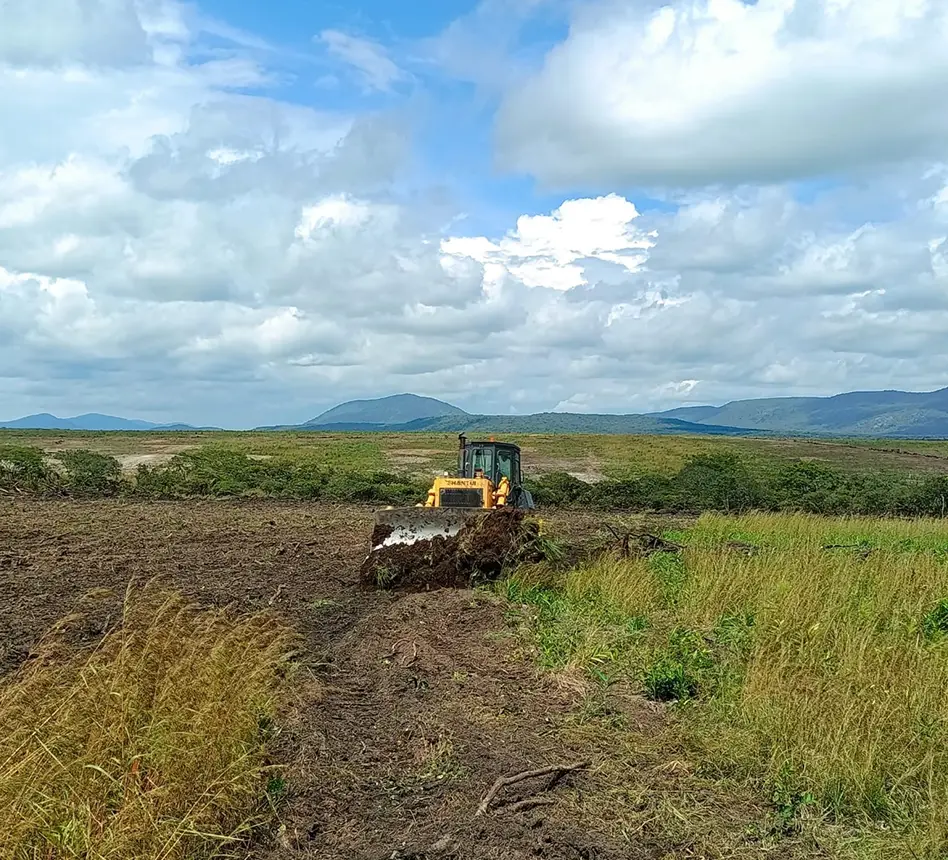
Farm Mechanization
FAMA is driving mechanization by providing affordable, modern farming tools and technologies. This improves productivity, reduces labor demands, and helps farmers transition to high-efficiency agriculture, with a target of 20% annual improvement.
Impact
Enhancing productivity and reducing labor intensity through technology integration.
Metric
Target 20% year-on-year improvement; currently supporting 30k–50k MT crop production annually.
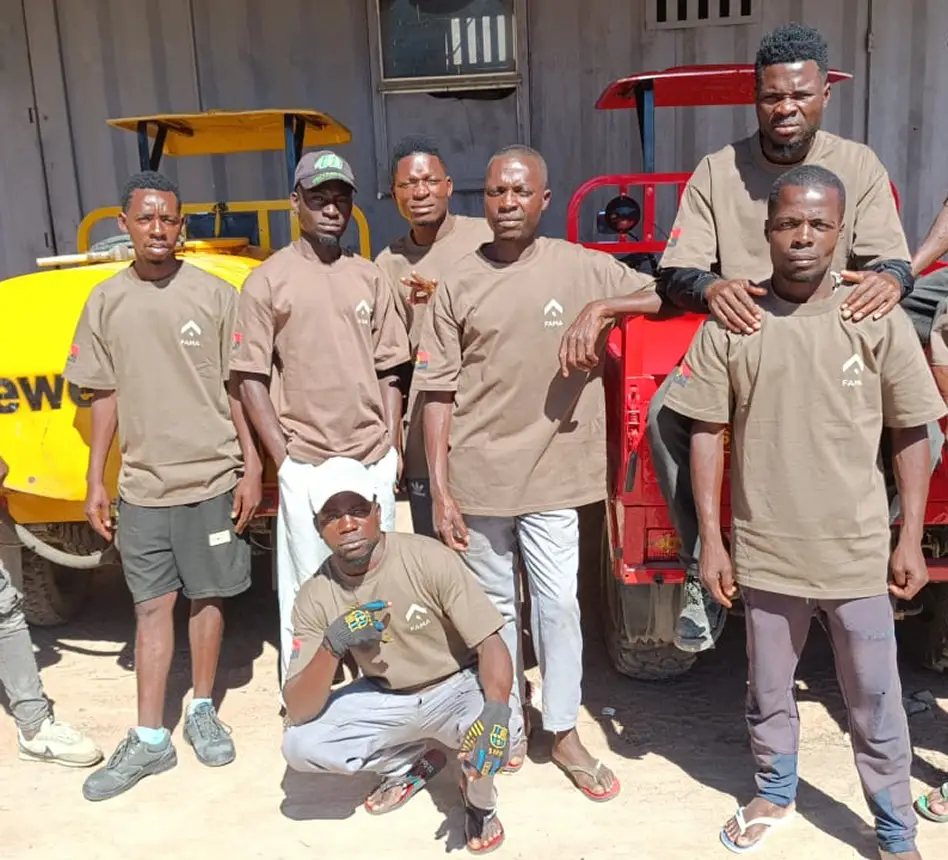
Socio-Economic Development
FAMA enhances livelihoods by improving access to essential farm inputs and tools while supporting value-added processing. Our goal is to double farmer income by 2030 and increase local food production across four African countries.
Impact
Doubling farmer incomes and reducing Africa’s agricultural import dependency.
Metric
Income 2× by 2030 and 5× by 2035; reduce Angola’s 150,000 MT/year import by 25–35%.